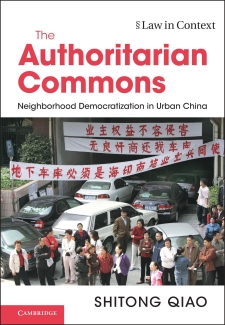Event
The Authoritarian Commons: Neighborhood Democratization in Urban China
133 S. 36th St, Philadelphia, PA

Based on six-year fieldwork across China including over 200 in-depth interviews, Qiao’s new book The Authoritarian Commons: Neighborhood Democratization in Urban China provides an ethnographic account of how hundreds of millions of Chinese homeowners practice democracy in and beyond their condominium complexes. Using interviews, survey data, and a comprehensive examination of laws, policies, and judicial decisions, this book also examines how the party-state in China responds to the risks and benefits brought by neighborhood democratization. Moreover, this book provides a framework to analyze different approaches to the authoritarian dilemma facing neighborhood democratization, which may increase the regime’s legitimacy and expose it to the challenge of independent organizations at the same time. Lastly, this book identifies conditions under which neighborhood democratization can succeed.
Featured Speaker
Shitong Qiao is Professor of Law and the Ken Young-Gak Yun and Jinah Park Yun Research Scholar at Duke Law School. He also holds the title of Honorary Professor at the University of Hong Kong and is a core faculty member of the Asia/Pacific Studies Institute at Duke University. He was previously a tenured professor at the University of Hong Kong, a Law and Public Affairs (LAPA) fellow at Princeton University, and the inaugural Jerome A. Cohen Visiting Professor of Law at NYU. Professor Qiao employs mixed methods to explore the relationship between political power, law, and private ordering. His first monograph, Chinese Small Property: The Co-Evolution of Law and Social Norms (Cambridge University Press, 2017), investigates how a real estate economy took off without legal titles. His second monograph, The Authoritarian Commons: Neighborhood Democratization in Urban China (Cambridge University Press, 2025), provides an ethnographic account of how hundreds of millions of Chinese homeowners practice democracy in and beyond their condominium complexes.